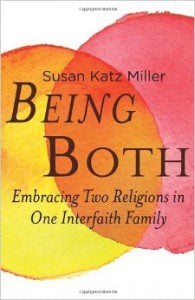 |
|
Depends on who you ask…
|
It is easy to mock but difficult to understand the wellsprings of anti-Muslim sentiment that appears to sweeping Europe. Consider as an example, the recent Swiss ban on minarets. In November 2009, 57.5% of the Swiss electorate voted for that constitutional amendment, which had been organized by the far-right Swiss People’s Party and the Federal Democratic Union. All but four of Switzerland’s twenty-four cantons endorsed the prohibition. In a statement celebrating the vote, the Egerkinger Committee, which wrote the referendum question, styled the ban as an “uncompromisin[g]” rejection of “any attempt to implement parts of sharia law in Switzerland.” For good measure, the Committee proclaimed that it would stand equally firm against “forced marriages.”
In the eyes of its Swiss supporters and their enthusiastic endorsers across Europe, the minaret prohibition was secularism’s necessary self-defense against the creeping conquest of Islam. (Switzerland, of course, has a whopping 4.25% Muslim population). As that ever-helpful Ayaan Hirsi Ali explained, the minaret is “a symbol of Islamist supremacy, a token of domination” much as the swastika was the symbol of Nazism. It is, said Hirsi Ali, the first step on the slippery slope to “self-segregation” and therefore cannot be tolerated.
For many, there is little need to explain how preposterous, logically farcical, and offensive Hirsi Ali’s comparison is between the swastika and the minaret. At a bare minimum, it’s enough to note here that the construction of a minaret in a mosque is not connected, either as a historical or a doctrinal matter, with any political program, let alone one remotely as repugnant as Nazism. But the fact remains that her comparison is read and accepted as plausible by many readers in Europe and, increasingly, in the United States. Indeed, for American critics such as Christopher Caldwell, debates in Europe about Muslim provide a bellwether that Americans should heed of coming crisis.
Understanding the dynamics both of European anti-Muslim sentiment and also of the complex social realities underneath it are of vital importance so long as Europe is configured as a front-line in what Samuel Huntington glibly called a “clash of civilizations.”
On first impression, John Bowen’s Can Islam be French? Pluralism and Pragmatism in a Secularist State (Princeton University Press, 2009) seems to be a volley from the Hirsi Ali side. The impression is misleading. Bowen is an anthropologist whose early work centered on Indonesia. Deciding that archipelago’s wilds were no longer to his liking, he has spent the better part of a decade seemingly ambling the streets of Paris and its environs, chatting amiably with all and sundry about Muslims in France. The result is a pair of engaging and important books: Can Islam be French? and its predecessor, the delightfully named Why the French don’t like Headscarves. Bowen, who is charming and eloquent in person, is clearly persuasive and capable of getting people to open up.
Focused on France, Europe’s most defiantly secularist country (at least in theory), the books together illustrate the complex tangle of misunderstandings, false expectations, missed cues, and naked misunderstandings that animate relations between Muslims on the one hand and European governments and non-Muslims on the other.
The books provide a peripatetic, only lightly theorized tour of hotspots of antagonism and bewilderment. Can Islam be French?, despite its ambitious title, in fact focuses relatively narrowly on efforts by French Muslims to open mosques, schools, and community centers. For Bowen, these are avenues for understanding a larger problem. Two themes emerge: first, the French government’s efforts to institutionalize Islam though national committees, cooption of imams, etc., in the same way that it co-opted Catholicism a century ago. And second, there is the persistent drumbeat of blanket contempt for Muslims evinced by French officials and ordinary people. From the local “prefect” who claims about the takeover of “les barbus” [the bearded ones] to the Normandy villages who suspect the organizers of a mosque-related kids’ summer camp of training terrorists, Bowen gently illustrates how pervasively, but sometimes imperceptibly, bias is woven into daily life. It is this backbeat that gets lost in the intemperate screeds of a Caldwell or a Hirsi Ali but that is a consistent fact for Muslims in Europe. [Full disclosure: I grew up in London and still have family there, so I may be biased]. Between cooption and contempt, French Muslims struggle to find a balance.
In the wake of the Swiss minaret ban, Bowen’s discussion of controversies over mosques is especially enlightening. In 2005, France had about 1686 mosques – of which only twenty could hold 1,000 or more people. Switzerland has less than five. The Swiss minaret ban comes against the backdrop of a religious institutional landscape across Europe in which Muslims are generally served by informal mosques in residences of older commercial buildings. It was the effort to build religious spaces commensurate to Islam’s numbers, in the eyes of the Swiss people, constituted an “attempt to implement …sharia law.”
But as Bowen illustrates, mosques in France are instead making efforts at “facing outward,” engaging with political authorities, neighbors both antagonistic and amiable, and also dealing with wider social problems. In the troubled Paris suburb of Clichy-sous-Bois, made famous by civil unrest in October 2005, a mosque is formed by a set of three apartments rearranged into a prayer space. Its imam strives to prevent a repeat of the riots while maintaining his independence against efforts by the French intelligence services, the Renseignements Généraux, to conscript him into “keeping order.”
In the “cathedral mosque” of the eastern town of Lyon – not too far from the Swiss border – the imam negotiates the preparation of halal meat, runs an “emergency” hotline that people can call if there is a death in the family, and counsels couples having marital dilemmas. Hardly the stuff of a clandestine counterinsurgency. To the contrary, the Tunisian imam of the mosque, Najjar Mondher, speaks eloquently of wanting to develop “an Islam attuned to European life” (a good anthropologist, Bowen listens carefully and both records and reproduces his subjects’ words at length). Rather than the rigid dogma alluded to by Hirsi Ali, this imam of a mosque with a good-size minaret struggles to find nuance and living meaning in verse and hadith. His example is a better response to Hirsi Ali’s nonsense than a dozen logical ripostes.
Regrettably priced as a specialist academic tome, Bowen’s book is enlightening and humane reading for anyone seeking to understand Europe’s current anguish over Islam. It is a shame that those who most would benefit from it will, in all certainty, not read it.
Aziz Huq is counsel in several cases concerning detention and national security policy, including Omar v. Geren and Munaf v. Geren, challenges to US citizen’s detention in Iraq. He has advised and spoken before legislators on issues related to the Separation of Powers, excessive secrecy, and illegal detention. His book with Fritz Schwarz, Unchecked and Unbalanced: Presidential Power In A Time of Terror (New Press), was published in 2007, and will be reissued in paperback in spring 2008. He is a frequent contributor to The Nation, the American Prospect, the New York Law Journal and Huffington Post. His articles have also appeared in the Washington Post, the New Republic, Democracy Journal, TomPaine, and Colorlines. In 2006 he was selected to be a Carnegie Fellows Scholar. He also teaches a seminar in Just War Theory and Terrorism at NYU School of Law.











